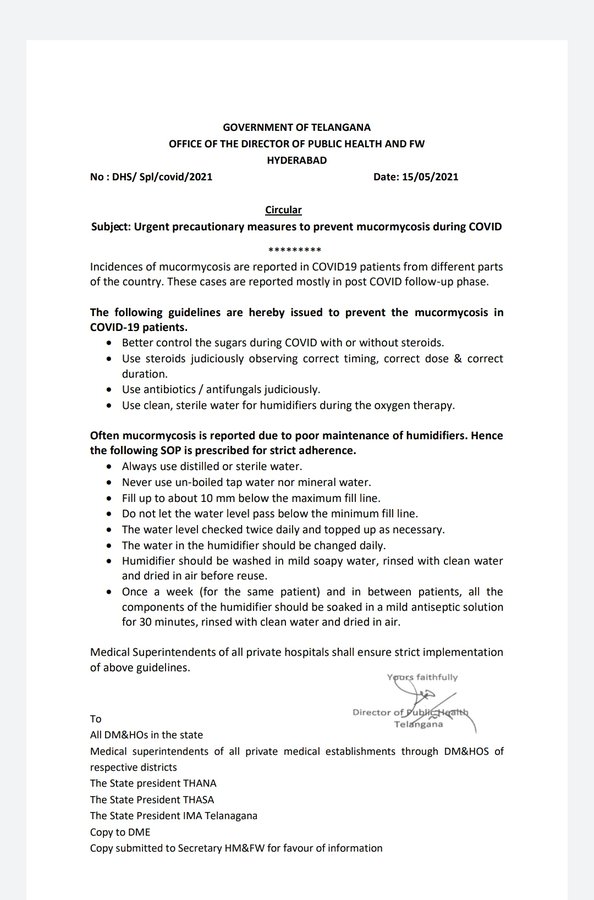Hyderabad: Mucormycosis or black fungus has been a serious concern among many COVID-19 patients and those recovered. This rare fungal infection has been majorly affecting those who took steroids to fight the infection.
In view of the rising number of patients with this rare condition, the Telangana health department issued a set of guidelines on Saturday, to reduce the rising cases of black fungus.
Some of the important guidelines included observing sugars during COVID-19 with or without steroids, using antibiotics, antifungals judiciously, etc.
You can view the guidelines here:

The guidelines also stated that the Mucormycosis is reported due to poor maintenance of humidifiers for which a list of measures were mentioned to keep in mind.
Mucormycosis is a very rare infection caused by exposure to mucor mold which is commonly found in soil, plants, manure, and decaying fruits and vegetables. It is colloquially known as ‘black fungus’.
Mucormycosis is a battle within a war of COVID-19. It can occur either concurrent to the COVID-19 infection or in the early post-recovery phase. It can affect the eyes and brain, warned Dr Tarjani Vivek Dave, Senior Ophthalmologist at L.V. Prasad Eye Institute.
Dr Dave informed that patients with pre-existing poorly controlled diabetes are more at risk for Mucormycosis. He also said that the second wave of COVID-19 which India is currently witnessing is far more severe with an increase in the incidence of the ‘black fungus’.
Even though the fungus is present in the oral and respiratory lining of healthy individuals, it does not manifest an infection in the presence of a healthy and intact immune system. Generally, this infection occurs in patients with uncontrolled diabetes, ongoing cancer chemotherapy, on-term steroid therapy, following an organ transplant, extensive burns, and polytrauma (severe injuries).
Early and localized infections can be treated with the local antifungal injections, followed by a long course of oral antifungal medications. Extensively spread infections require aggressive sinus surgery to clear the internal contents of the cheekbones and injections behind the eye. In a lot of these cases, unfortunately, the entire eyeball must be removed to contain the infection and avoid fatality.

